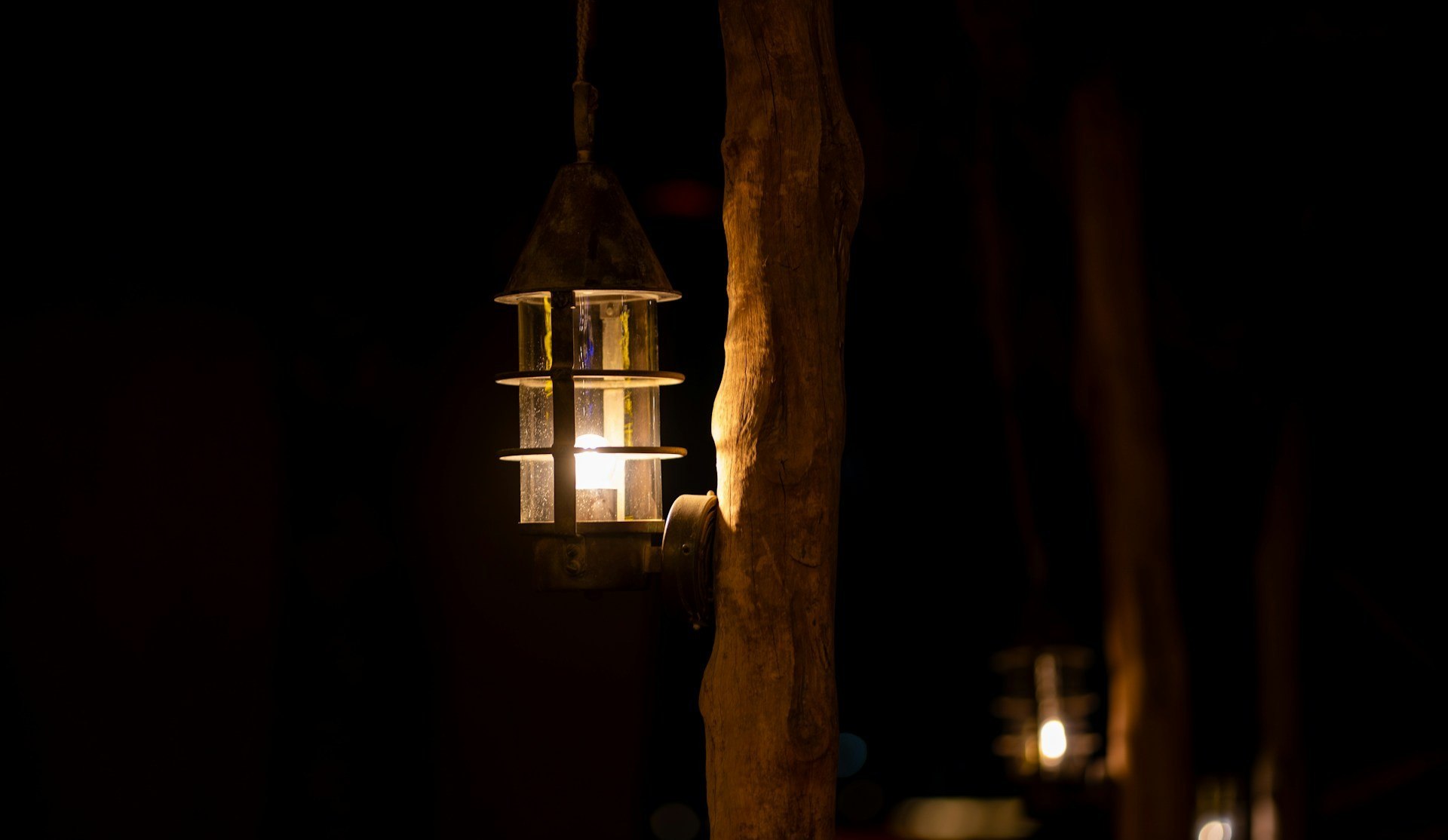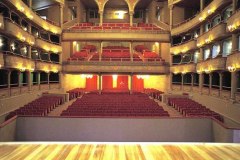Pagliacci
September 2026 | ||||||
|---|---|---|---|---|---|---|
Mo | Tu | We | Th | Fr | Sa | Su |
Pagliacci – Ruggero Leoncavallo | Opera
La Fenice staging
In partnership with the Accademia di Belle Arti di Venezia
With Italian surtitles
Synopsis
Place: Calabria, near Montalto, on the Feast of the Assumption
Time: between 1865 and 1870
Prologue
During the orchestral introduction, Tonio, dressed as his commedia dell'arte character Taddeo, pokes his head through the curtain, advances, and addresses the audience. ("Si può?... Si può?... Signore! Signori! ... Un nido di memorie"). He reminds the audience that actors have feelings too, and that the show is about real people. Tonio returns behind the curtain, which then rises for the main action.
Act 1
At three o'clock in the afternoon, the commedia troupe enters the village to the cheering of the villagers. Canio describes the night's performance: the troubles of Pagliaccio. He says the play will begin at ventitré ore, an agricultural method of time-keeping that means the play will begin an hour before sunset. As Nedda steps down from the cart, Tonio offers his hand, but Canio pushes him aside and helps her down himself.
The villagers suggest drinking at the tavern. Canio and Beppe accept, but Tonio stays behind. The villagers tease Canio that Tonio is planning an affair with Nedda. Canio warns everyone that while he may act the foolish husband in the play, in real life he will not tolerate other men making advances to Nedda. Shocked, a villager asks if Canio really suspects her. He says no, and sweetly kisses her on the forehead. As the church bells ring vespers, he and Beppe leave for the tavern, leaving Nedda alone.
Nedda is frightened by Canio's vehemence ("Qual fiamma avea nel guardo"), but the birdsong comforts her ("Stridono lassù"). Tonio returns and confesses his love for her, but she laughs. Enraged, Tonio grabs Nedda, but she takes a whip, strikes him and drives him off. Silvio, who is Nedda's lover, comes from the tavern, where he has left Canio and Beppe drinking. He asks Nedda to elope with him after the performance and, though she is afraid, she agrees. Tonio, who has been eavesdropping, leaves to inform Canio so that he might catch Silvio and Nedda together. Canio and Tonio return and, as Silvio escapes, Nedda calls after him, "I will always be yours!"
Canio chases Silvio, but does not catch him and does not see his face. He demands that Nedda tell him the name of her lover, but she refuses. He threatens her with a knife, but Beppe disarms him. Beppe insists that they prepare for the performance. Tonio tells Canio that her lover will give himself away at the play. A heartbroken Canio is left alone to put on his costume and prepare to laugh ("Vesti la giubba" – "Put on the costume").
Act 2
As the crowd arrives, Nedda, costumed as Colombina, collects their money. She whispers a warning to Silvio, and the crowd cheers as the play begins.
Colombina's husband Pagliaccio has gone away until morning, and Taddeo is at the market. Alone, she anxiously awaits her lover Arlecchino, who comes to serenade her ("O Colombina") from beneath her window. Taddeo returns and confesses his love, but she mocks him. She lets Arlecchino in through the window. He boxes Taddeo's ears and kicks him out of the room, and the audience laughs.
Arlecchino and Colombina dine, and he gives her a sleeping potion to use later, "so that when Pagliaccio returns, she can drug him and elope with Arlecchino." Taddeo then bursts in, warning them that Pagliaccio is suspicious of his wife and is about to return. As Arlecchino escapes through the window, Colombina tells him, "I will always be yours!"
As Pagliaccio enters, he hears Colombina speak this line and, now as Canio, exclaims "Nome di Dio! Quelle stesse parole!" – "Name of God! Those same words!" He tries to continue the play, but loses control and demands to know her lover's name. Nedda, hoping to keep to the performance, calls Canio by his stage name "Pagliaccio" to remind him of the audience's presence. He answers with his arietta: "No! Pagliaccio non son!" – "I am not Pagliaccio!" He sings that if his face is pale, it is not from the stage makeup but from the shame she has brought him. The crowd is impressed by his emotional performance and cheers him, without realizing that it is real.
Nedda, trying to continue the play, admits that she has been visited by the innocent "Arlecchino". Canio, furious and forgetting the play, demands the name of her lover. Nedda swears she will never tell him, and it becomes apparent that they are not acting. Side-stage, Beppe asks Tonio to intervene, but Tonio refrains and prevents Beppe from halting the action. Silvio begins to fight his way toward the stage. Canio, grabbing a knife from the table, stabs Nedda. As she dies, she calls: "Help! Silvio!" Silvio attacks Canio, but Canio kills him as well. The horrified audience then hears the celebrated final line:
"La commedia è finita!!" – "The comedy is finished!"
Program and cast
Conductor: Daniele Callegari
Director: Andrea Bernard
La Fenice Orchestra & Choir
Chorus Master: Alfonso Caiani
The roles are currently being defined and will be announced as soon as possible.
Teatro Malibran
The Teatro Malibran, known over its lifetime by a variety of names, beginning with the Teatro San Giovanni Grisostomo(or Crisostomo) after the nearby church, is an opera house in Venice which was inaugurated in 1678 with a production of the premiere of Carlo Pallavicino's opera Vespasiano. By 1683, it had quickly become known as "the biggest, most beautiful and richest theatre in the city" and its operatic importance throughout the 17th and 18th centuries led to an even grander description by 1730:
A true kingdom of marvels....that with the vastness of its magnificent dimension can be rightly compared to the splendours of ancient Rome and that with the grandeur of its more than regal dramatic performances has now conquered the applause and esteem of the whole world.
Richly decorated, the theatre consisted of five levels of thirty boxes and a large stalls area. However, as an opera house, its success was short-lived and from 1751 to 1800, opera was rarely performed there. Taken over by the municipality in 1797, it became the Teatro Civico until purchased by a partnership and restored in 1819. It re-opened again, this time in private hands, with Rossini's La gazza ladra. But deterioration continued, the partnership broke up, and the remaining partner, Giovanni Gallo, continued with additional refurbishment, giving it the new name of the Teatro Emeronitto (Theatre of Day and Night) and inaugurating it in December 1834 with Donizetti's L'elisir d'amore.
When the famous soprano Maria Malibran came to sing Vincenzo Bellini's La sonnambula on 8 April 1835, she was clearly appalled at the condition of the theatre since Lynn reports that "she refused her fee, telling the impresario to 'use it for the theatre' ". At that point the opera house became the Teatro Malibran in the singer's honour and it is the name by which the theatre has been known ever since.
Transport
Vaporetto
From Tronchetto: line 2 toward Rialto bridge, St Mark and Lido
From Piazzale Roma and the Santa Lucia train station: line 1 or line 2 toward Rialto bridge, St Mark and Lido
Stops: take line 1 to Rialto bridge, St Angel, St Samuel or St Mark Marco (Vallaresso); or Take line 2 to Rialto or St Mark (Vallaresso)
Alilaguna public transportation service from the Marco Polo airport - take the orange line to Rialto bridge or the blue line to St Mark (Vallaresso)

 EN
EN DE
DE IT
IT FR
FR ES
ES RU
RU JP
JP RO
RO
 Seating plan
Seating plan 